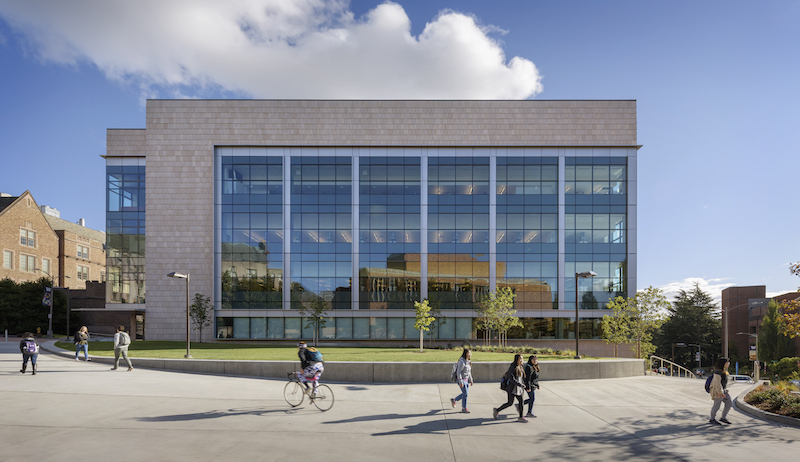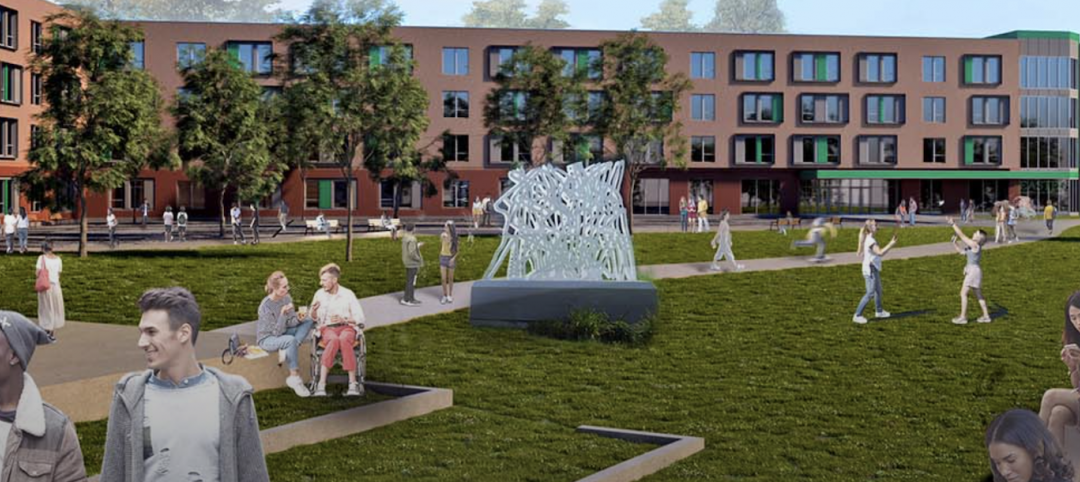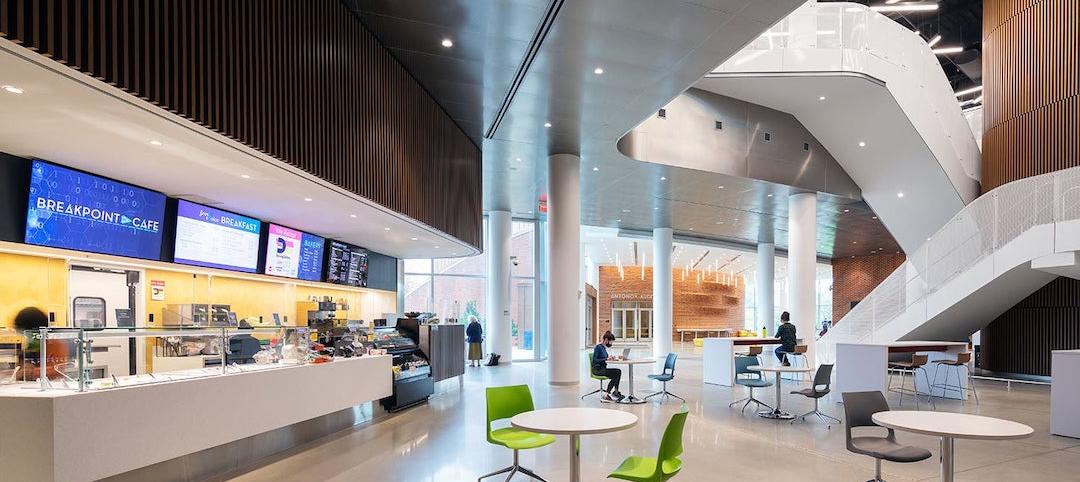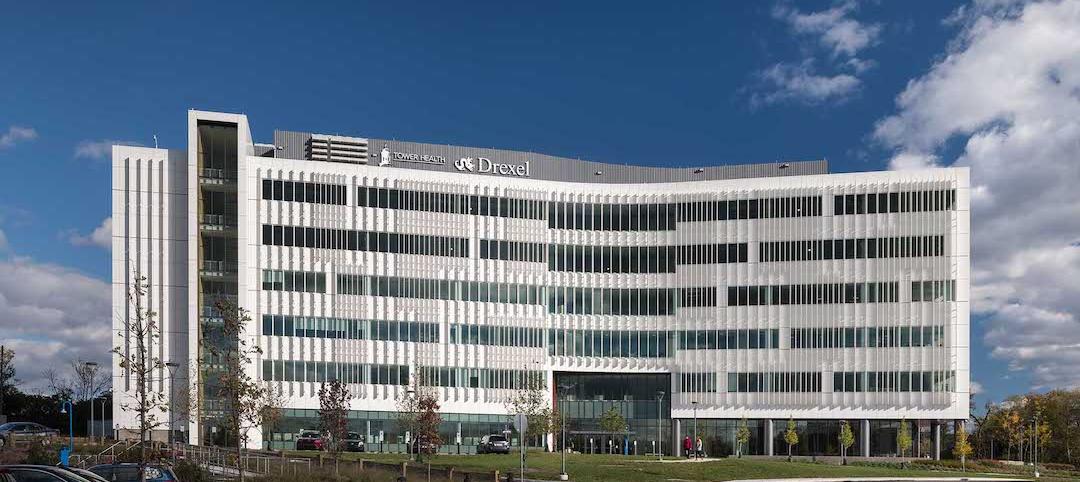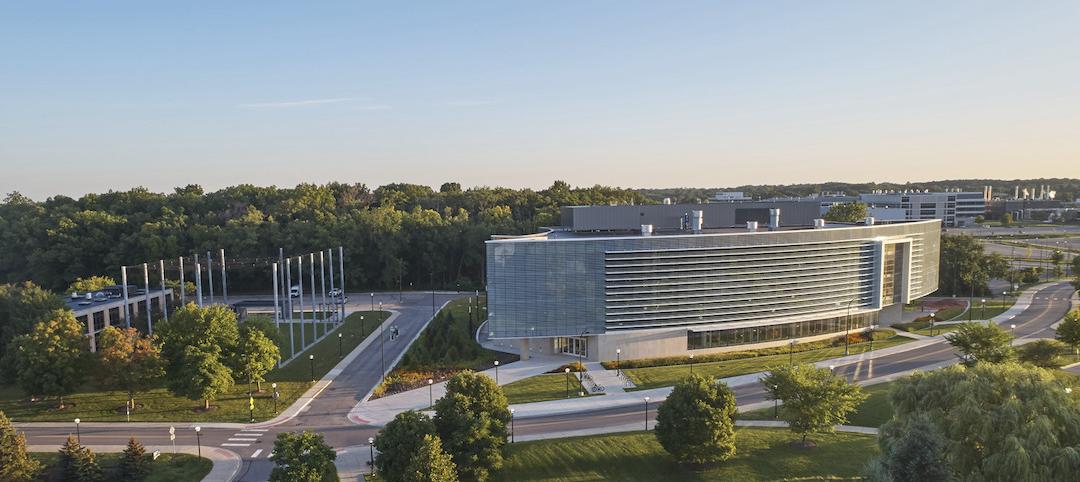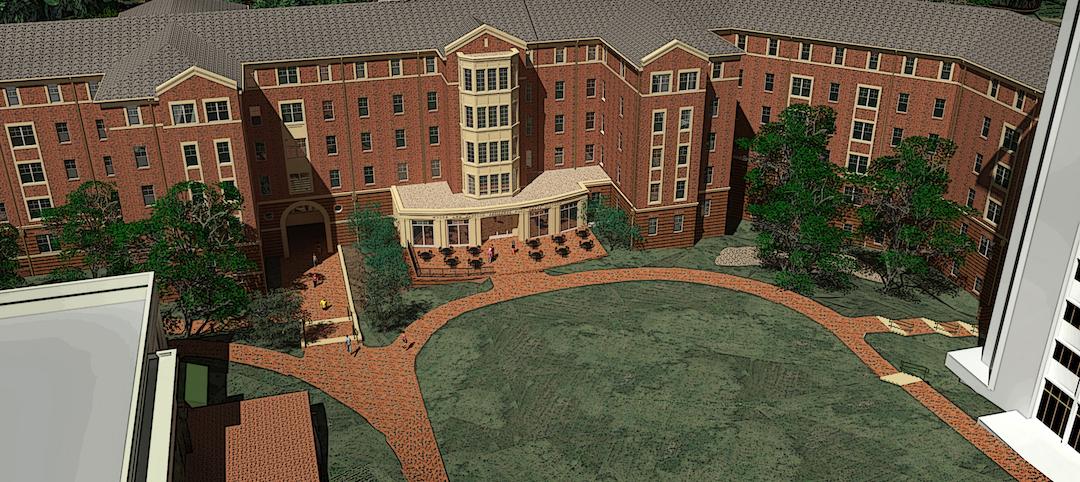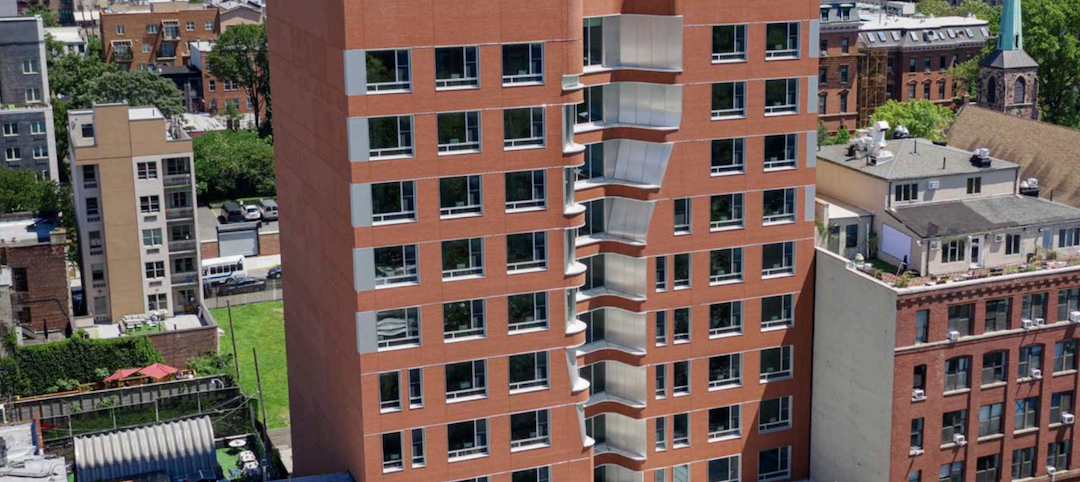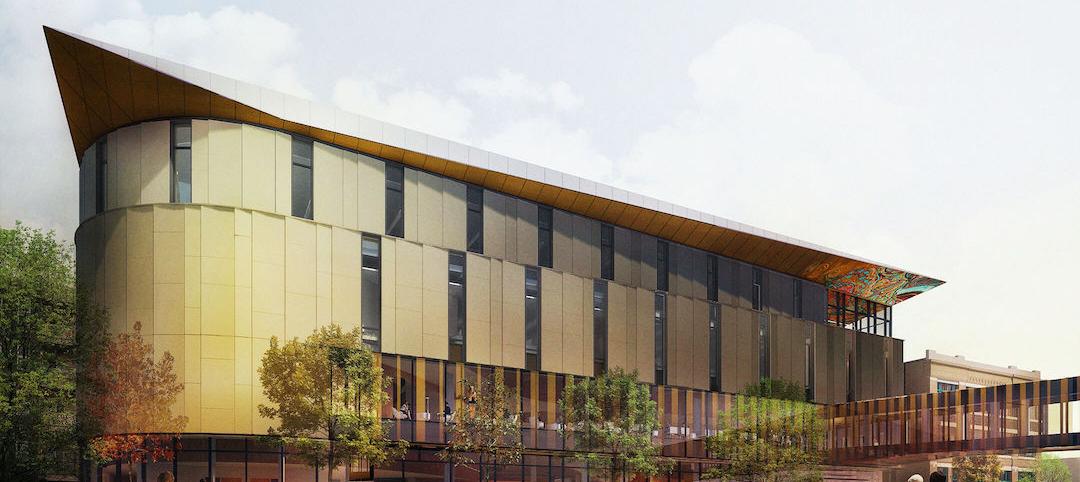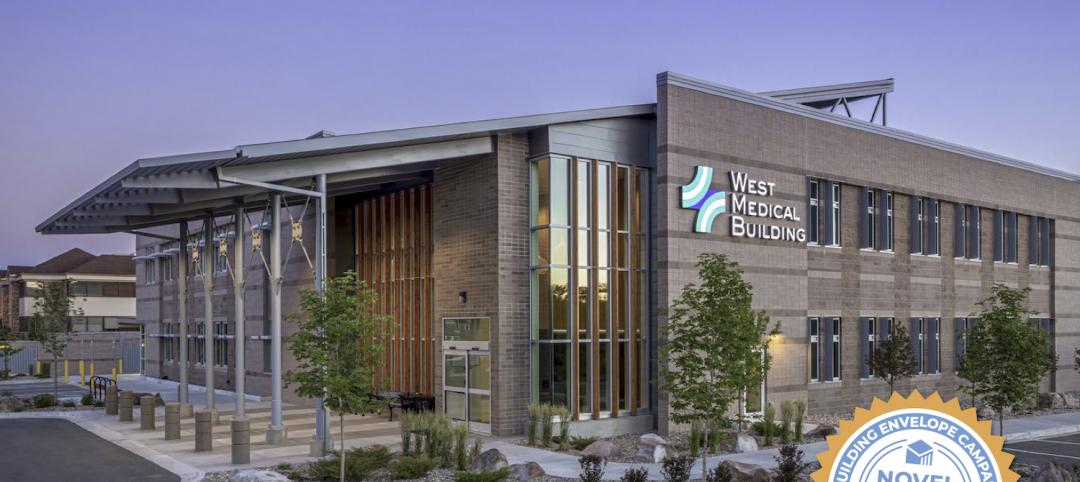In 2012, the 90,000-sf Molecular Engineering and Sciences Building was completed on the University of Washington Campus. This past summer, the five-story, 78,000-sf Nanoengineering and Sciences Building was completed. The two connected buildings make up a 168,000-sf complex that accommodates growth in the molecular engineering and nanoengineering fields, responds to the evolving interdisciplinary nature of teaching and research, and fits within a historic, high-density area of the UW campus.
The new $87.8 million, ZGF Architects-designed nanoengineering building will house the UW Institute for Nano-Engineered Systems and is specifically equipped for the performance or organic, inorganic, and biomolecular synthesis. The limestone, aluminum and glass curtain wall facility can accommodate students and faculty in a variety of nanoengineering disciplines such as energy, materials science, computation, and medicine.
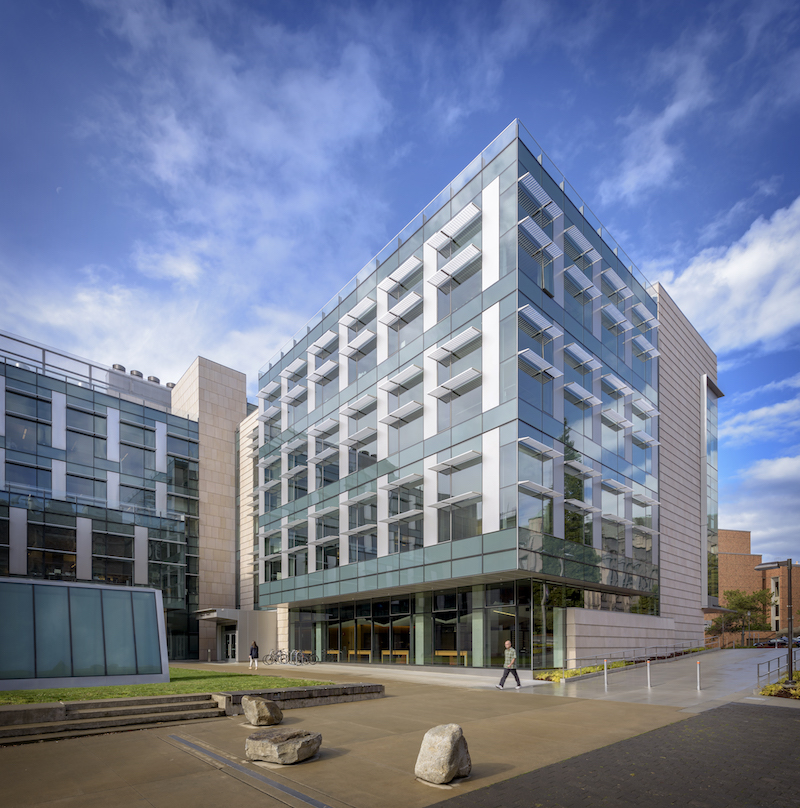 Photo: Aaron Leitz Photography.
Photo: Aaron Leitz Photography.
Flexibility of space was a driver for both phases of the complex. Research labs were designed to adapt as the equipment, research, and faculty change. Overhead service carriers above the lab benches allow for researchers to “plug and play” in any location. At the end of each lab there are rooms that can be arranged to house large equipment or specialty research spaces.
In addition to the labs, the new building also includes general-purpose classrooms, conference rooms, and collaboration spaces. Floors two through four are programmed research laboratory spaces. The first floor includes two highly adaptable classrooms and a shared, informal learning center.
Because the nanoengineering building has mainly southern and northern exposures, ZGF needed a strategy to address the added heat loads to the building due to the different orientation from phase one. Radiant flooring is used for heating and cooling purposes and chilled sails are used in the ceilings along the south wall of the office spaces. The units are ceiling-mounted and flush to the ceiling plane.
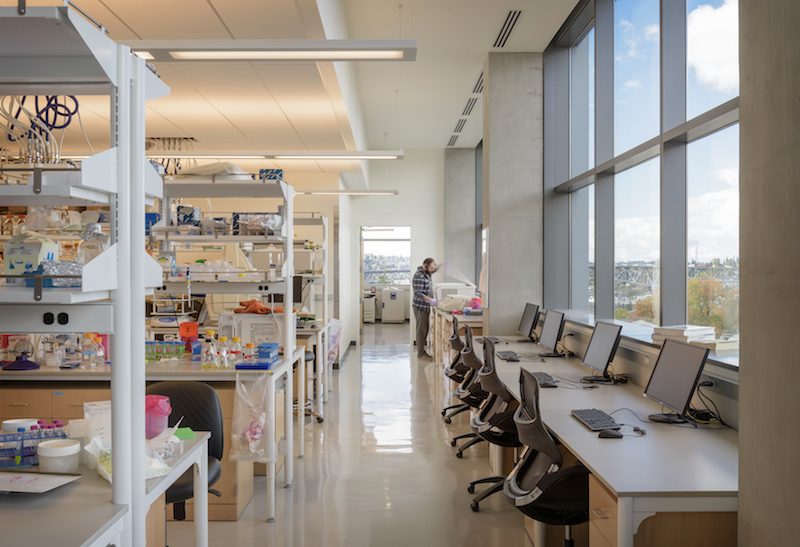 Photo: Aaron Leitz Photography.
Photo: Aaron Leitz Photography.
The new facility incorporates numerous sustainability features such as rain gardens and green roofs planted with vegetation to attract native bees. Stormwater runoff will be directed to the roof gardens to reduce runoff to additional drainage systems.
One of the more unique sustainable features is the use of phase-change materials (PCM). PCM is a gel that becomes warm and liquid during the day and solidifies at night. It is encapsulated in walls and ceiling panels of the naturally ventilated spaces and reduces temperature as it changes material states. The PCM is composed of an inorganic material base and is “charged” at night when windows to office spaces are automatically opened to provide a flush of cool air. The PCM has been shown to reduce the temperature around 1.5 to 2 degrees during peek times on the hottest days of the year.
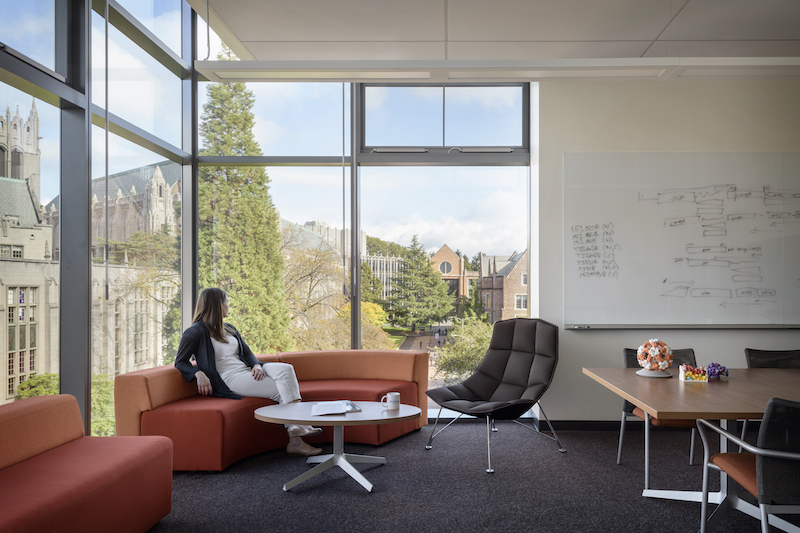 Photo: Aaron Leitz Photography.
Photo: Aaron Leitz Photography.
The building team included Hoffman Construction Company (GC), KPFF (civil engineering, structural engineering), AEI (MEP), Site Workshop (landscape architecture), Research Facilities Design (lab planning), and Studio SC (graphics, wayfinding signage).
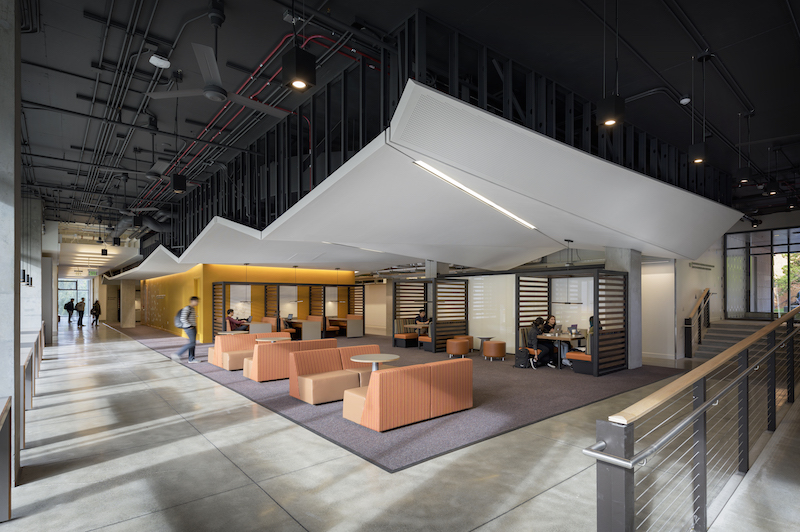 Photo: Aaron Leitz Photography.
Photo: Aaron Leitz Photography.
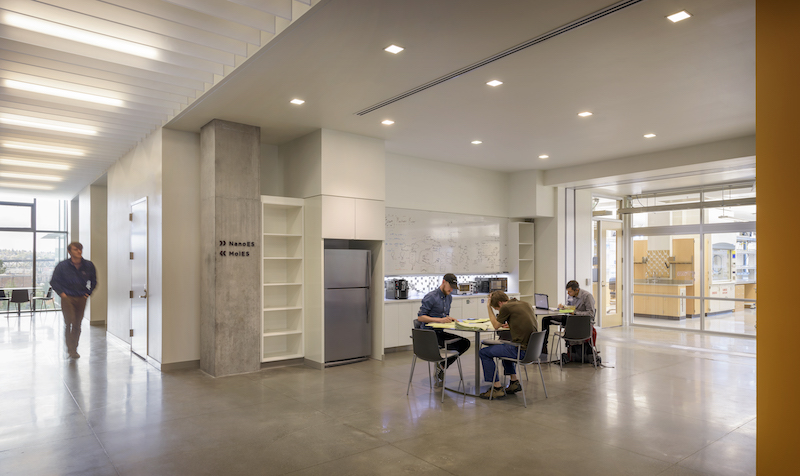 Photo: Aaron Leitz Photography.
Photo: Aaron Leitz Photography.
Related Stories
University Buildings | Jan 19, 2022
Eastern Michigan University launches major student housing project
The institution is working with Gilbane Development Company to build or renovate more than 2,700 on-campus beds.
University Buildings | Jan 11, 2022
Designing for health sciences education: supporting student well-being
While student and faculty health and well-being should be a top priority in all spaces within educational facilities, this article will highlight some key considerations.
University Buildings | Jan 6, 2022
New Facility completes at Drexel University College of Medicine at Tower Health
SLAM designed the project.
University Buildings | Jan 4, 2022
Henning Larsen to design new university building in the Alps
The project will be Henning Larsen’s first in Austria.
University Buildings | Dec 8, 2021
The University of Michigan’s Ford Robotics Building completes
HED designed the project.
University Buildings | Nov 23, 2021
The University of North Carolina at Charlotte’s new residence hall begins construction
KWK Architects designed the project.
University Buildings | Nov 18, 2021
Pratt Institute Residence Hall completes, opens
Hanrahan Meyers Architects, in collaboration with Cannon Design, designed the project.
Designers / Specifiers / Landscape Architects | Nov 16, 2021
‘Desire paths’ and college campus design
If a campus is not as efficient as it could be, end users will use their feet to let designers know about it.
University Buildings | Nov 15, 2021
Red River College Polytechnic’s new Manitou a bi Bit daziigae opens
Diamond Schmitt and Number TEN Architectural Group designed the project.
Cladding and Facade Systems | Oct 26, 2021
14 projects recognized by DOE for high-performance building envelope design
The inaugural class of DOE’s Better Buildings Building Envelope Campaign includes a medical office building that uses hybrid vacuum-insulated glass and a net-zero concrete-and-timber community center.


